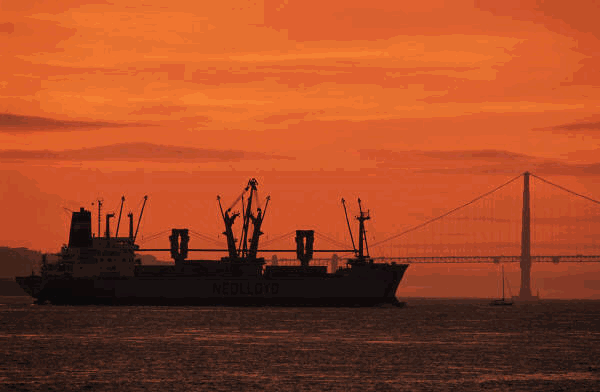DMC/S&T/14/01
Demand Shipping Co Ltd v. Ministry of Food of Bangladesh – the ‘Lendoudis
Evangelos II’
English High Court: Cresswell J: June 2001
CARRIAGE OF GOODS BY SEA: EMERGENCY FUEL OIL SHUT-OFF VALVE ACTIVATED BY
UNKNOWN CREW MEMBER: GENERAL AVERAGE ACCIDENT: ACCESS TO VALVE NOT PROTECTED BY
GLASS PANEL: UNSEAWORTHINESS:PURPOSE OF SHUT-OFF VALVE: UNPRECENTED INCIDENT: WEIGHING COMPARATIVE RISKS:
REASONABLENESS: EFFECT ON CAUSATION HAD GLASS PANEL BEEN PRESENT
DMC Category Rating: Confirmed
Facts
On March 7, 1990, the Lendoudis Evangelos II departed from the port of
Montreal, Canada, carrying a part cargo of wheat destined for Ban gladesh. The
ship was due to call at the port of Quebec to load additional cargo. En route to
Quebec, the ship suffered a complete electrical f ailure, which resulted in the
stoppage of the main engine. As a consequence, the ship ran aground and
sustained serious bottom damage. The owners declared general average and the
cargo interests provided a General Average Bond and security for its proportion.
According to the adjustment, cargo’s proportion amounted to US$1.137 million.
The electrical failure occurred because a crew member had moved the control lever of the fuel tank’s emergency cut-off system through 180 degrees. As a consequence, the quick-closing outlet valve of the generator daily service tank, which was in use at that time supplying the generator engines with diesel oil by gravity, closed, causing the generator engines to stop. It was agreed between the parties that the crew member could not have activated the emergency shut-off system accidentally and that he did not intend to cause damage to the ship.

The bill of lading issued for the cargo loaded in Montreal was subject to the Canadian Water Carriage of Goods Act of 1936. The cargo interests denied their liability to contribute in general average on the grounds that the shipowners were in breach of contract. The ship was, according to the cargo interests, unseaworthy on her departure from Montreal because the glass panel of the control box housing the emergency shut-off device was missing. Had the glass been in place, the casualty would not have occurred.
Judgment
The judge held that the burden of proving that the ship was unseaworthy and
that the unseaworthiness caused or contributed to the casualty was on the
defendant cargo interests.
The judge adopted the classic definition of unseaworthiness approved in the
case of Bradley v. Federal Steam Navigation [1926] 24 LLR 446, to the effect
that:
‘the ship must have that degree of fitness which an ordinary careful owner
would require his vessel to have at the commencement of her voyage having regard
to the all the probable consequences of it. Would a prudent owner have required
that it should be made good before sending his ship to sea, had he known of it?’
The judge held that ‘a reasonable difference of opinion does not amount to want of due diligence and the doctrine of seaworthiness does not demand protection against a unique case which, if it occurred, would be against not only the probabilities but against general experience. Seaworthiness must be judged by the standards and practices of the industry at the relevant time, at least so long as those standards and practices are reasonable.’

The judge noted that ‘there is no class requirement for any form of guard against unauthorised operation of such a safety device as the fuel oil tank emergency shut-off valve’ but accepted that not too much reliance could be placed on this point, because in this area, ‘Class Rules do not lay down the standard of a prudent shipowner.’ He noted, however, that ‘no published material from any industry or other source was placed before the court which mentioned the need for, or the desirability of, any form of protection.’ He found that ‘the primary requirement in regard to the remote operating panel was accessibility and ease of operation in case of an emergency, particularly fire (with safeguards as to its accidental operation). These requirements were met in the present case.’ The activation of the emergency shut-off valve was found to be ‘a grossly irresponsible act by an unknown member of the crew.’ The parties’ experts ‘drawing on wide experience, had never heard of a similar incident. To this extent, the incident was unprecedented.’
The judge continued:
‘A prudent owner would have been entitled to take the view in 1990 (a) that
the primary requirement was accessibility and ease of operation in case of
emergency, particularly fire and (b) that there would be greater accessibility
and ease of operation in case of fire, if there was no glass in front of the
box. Such a view in 1990 would have been respectable, responsible and
reasonable. It would have had a logical basis. It would have involved weighing
comparative risks.
The [cargo interests’] case involves the conclusion t hat a very significant (but unidentifiable) number of vessels in 1990 were unseaworthy [if they were operating without a protective device controlling access to emergency equipment]. Any court would naturally be hesitant to reach this conclusion. The better view in my judgment is that there were different schools of thought (and no industry standard)….. In all the circumstances I find that the ship was seaworthy at the material time.’
Given that the activation of the emergency shut-off device was a grossly irresponsible action by an unknown member of the crew, the judge ruled….’ it is a matter of speculation whether the unknown crew member would or would not have been deterred from action as he did if the glass panel had been in place…As there is no evidence as to the reason for the grossly irresponsible act, I am not prepared to say that the [cargo interests] have proved on a balance of probabilities that the unknown crew member would have been deterred by a pane of glass.’
The judge accordingly found in favour of the claimant shipowners.